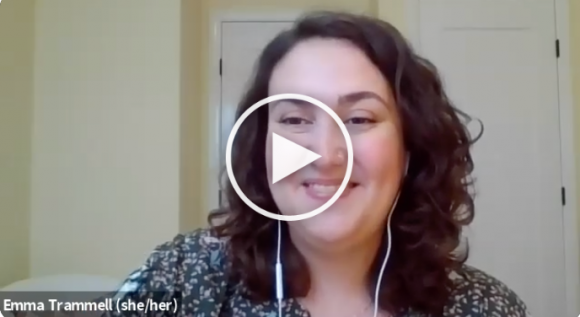
Career Resiliency in the Performing Arts How to take care of your mental health during challenging times
October 15, 2020
Feeling stressed these days? You’re not alone. Pursuing a career in the performing arts can come with its fair share of stressors. Honing your craft requires not only passion but an intense work ethic, and career paths in arts and entertainment can be unpredictable and competitive. On top of all that, these days we are also all adjusting to the impact that the pandemic has had on school and work. That’s why it’s more important than ever for artists and creative professionals to prioritize mental health during this time. Cultivating good self-care habits can help you develop resiliency, an invaluable trait when it comes to building a successful career. Career resiliency is the ability to stay afloat when things get tough, to seek learning opportunities in challenges, and to recover from setbacks.

Abbey Umali, Class of 2021
Abbey Umali, a senior double-majoring in Music and Psychology with a minor in Disability Studies, is a strong advocate for helping performing arts majors become more resilient in the face of obstacles and find joy from the art they create. “Mental health for performing artists is something that is extremely important, but doesn’t get a lot of attention,” she says. “We often focus on how beneficial the arts can be for audiences, but not always for the performers.”
After noticing that many of her peers were coping with issues such as performance anxiety, pressure, self-doubt, and self-comparison she decided to take action. In her role as 2019–2020 CoPA Senator for the Student Government Association last year, Umali planned a workshop with Art for Impact, an organization that promotes mental wellness by creating space for young people to learn and connect through art and media. The workshop was facilitated virtually and participants came away with new strategies for how to use art to improve their mental health and self-care routines. Umali states, “Art has the ability to provide healing for both the audience and the performers, and sometimes it takes some intentionality and vulnerability to overcome the internal and external challenges that come with being an arts student.”

Corene V. Tague, M.A., LMFT
Corene Tague, a licensed therapist with Student Psychological Counseling Services at Chapman, spoke to CoPA students and alumni at a recent career workshop on navigating your performing arts career during uncertain times. Tague addressed some of the unique challenges performing arts majors face, such as academic demands, burnout, and the impact on one’s identity when performance opportunities are severely altered or limited. Tague recommended the use of apps such as Headspace, Breathe2Relax, and MindShift CBT. Current students can seek additional free support for through Student Psychological Counseling Services, and alumni can access sliding-scale services through the Francis Smith Center for Individual and Family Therapy.
On how CoPA students and alumni can approach current challenges, Tague adds: “You are at a pivotal time in your life, faced with a great deal of stress and adversity. How you prepare your environment, choose to navigate through the adversity and prioritize your mental health will have a great impact on your professional, academic, and interpersonal experiences. It is important to remember the joy and love you feel for your craft. It is important to nurture the relationships that fill your tank. It is important to battle hard but find softness within. Make the most out of these times, they will define who you become.”
For more information about how to navigate your performing arts career today, watch the full presentation from Emma Trammell and Corene Tague in the video below.


